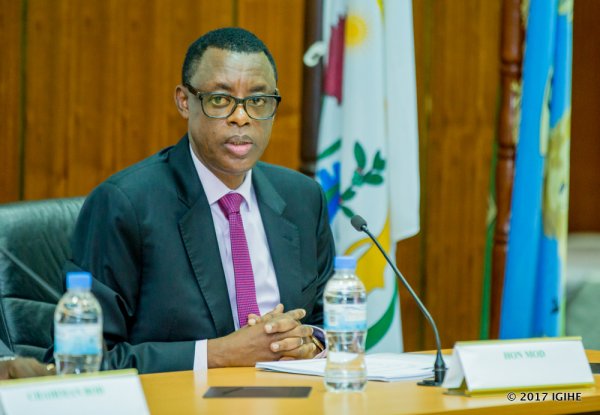Rwanda has strongly condemned the United States’ decision to sanction Minister of State James Kabarebe, calling it an unjustified and unfounded move that does nothing to resolve the ongoing conflict in eastern Democratic Republic of Congo (DRC). The sanctions, imposed by the U.S. Office of Foreign Assets Control (OFAC), are seen as yet another example of external interference that risks prolonging instability in the region.
James Kabarebe is widely regarded as a hero, a freedom fighter whose military leadership helped liberate Rwanda and bring stability to the Great Lakes region. As a key strategist, he played a decisive role in ending the 1994 Genocide against the Tutsi and later helped dismantle the genocidal forces that had fled to the DRC. His efforts were also instrumental in removing Mobutu Sese Seko’s corrupt regime, ushering in a new political era for the Congo. The accusations against him stand in stark contrast to his legacy as a man who fought for peace and stability.
For the past three years, the conflict along Rwanda’s western border has been fueled by a coalition of forces that includes the Congolese armed forces (FARDC), SAMIDRC troops, Burundian soldiers, the FDLR genocidal militia, and European mercenaries. Despite their role in escalating violence, these groups have not faced sanctions. Rwanda recently facilitated the safe passage of 300 European mercenaries fighting in the DRC to Romania, raising questions about the selective nature of international actions. The failure to hold these groups accountable, while targeting Rwandan officials, reveals a troubling pattern of double standards in global diplomacy.
Rwanda has consistently maintained that its sole objective is securing its borders and putting an irreversible end to armed ethnic extremism in the region. The FDLR, a militia composed of remnants of the genocidal forces that fled Rwanda in 1994, continues to operate in eastern Congo, posing a direct and persistent threat to Rwandan security. The right of Rwandans to live in peace, without the looming danger of cross-border attacks, remains a fundamental national priority.
The government has warned that punitive measures such as sanctions contribute nothing to lasting stability in the Great Lakes region. Instead, they amount to unwarranted external interference that undermines African-led peace efforts. Rwanda remains fully committed to the mediation process recently reinforced by the joint East African Community (EAC)-Southern African Development Community (SADC) Summit and the African Union (AU) Summit. This remains the only credible path to a negotiated solution, and any attempts to derail it through external pressure risk deepening the crisis rather than resolving it.
As tensions persist, Rwanda has made it clear that it will not be swayed by external pressure or politically motivated actions. Achieving peace in the region requires genuine diplomacy, regional collaboration, and a firm commitment to addressing the root causes of the conflict—not unjust sanctions that ignore the true dynamics at play
